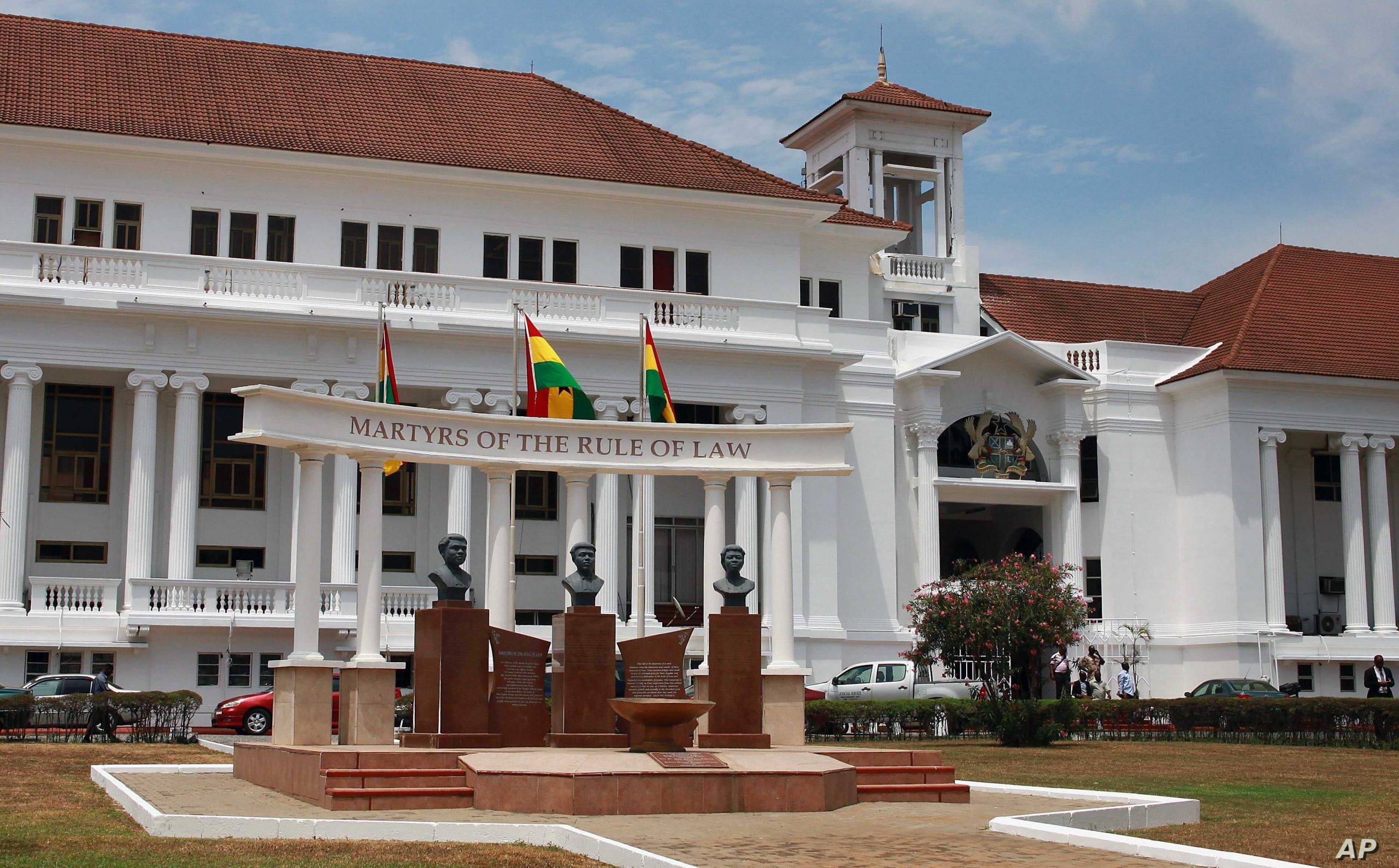The Supreme Court of Ghana recently delivered a landmark judgment in a case brought by Majority Leader Alexander Afenyo-Markin, challenging the decision of Speaker Alban Bagbin to declare four parliamentary seats vacant. The seven-member panel, led by Chief Justice Gertrude Torkornoo, ruled 5-2 in favor of the suit on Tuesday, November 12, 2024, overturning the Speaker's declaration. While the majority argued that parliamentary seats could only be declared vacant if lawmakers formally changed their political affiliation and continued to serve in Parliament under the new party, two dissenting justices voiced significant opposition to the decision.
The ruling has sparked intense debate across political and legal circles, with supporters of the decision lauding it as a reinforcement of constitutional guidelines, while critics, including the dissenting justices, view it as an encroachment on established judicial practices.
Justice Lovelace-Johnson was one of the dissenting voices, firmly arguing that the Supreme Court lacked jurisdiction over cases involving the vacation of parliamentary seats. She asserted that such matters fall exclusively under the purview of the High Court. In her detailed opinion, Justice Lovelace-Johnson emphasized the procedural impropriety of the case being heard at the Supreme Court.
“It is my opinion that in relation to a matter regarding the vacation or otherwise of a parliamentary seat, a plaintiff has no choice in the matter. He has to go to the High Court. The jurisdiction of the High Court is exclusive,†she stated. “The plaintiff, having brought his writ to the Supreme Court, has not properly invoked the jurisdiction of this court. I see no need to delve into the merits or otherwise of the other issues raised in the memoranda of issues. The action is accordingly dismissed.â€
Justice Lovelace-Johnson’s position underscores the need to adhere strictly to constitutional mandates when addressing such disputes, which she argued should have been resolved at the High Court level.
Justice Tanko Amadu, the second dissenting judge, expressed even stronger reservations about the majority’s ruling. In his view, the decision represented a fundamental departure from established judicial practices and risked undermining constitutional provisions. He described the ruling as an “aberration†and highlighted its potential long-term consequences for Ghana’s legal framework.
“I do not hasten to proclaim that I have apprehended with despair the majority’s conclusion in this suit, but I state, with utmost deference to the Hon. Chief Justice and the rest of my brethren in the majority, that not only do I fundamentally disagree with their conclusion, I, with all due respect, also find the decision an aberration to the established and accepted judicial position of this court,†Justice Tanko Amadu stated.
He further noted that the judgment sets a precedent that could lead to the usurpation of the High Court's constitutional prerogatives. Justice Tanko Amadu expressed hope that the implications of the decision would be revisited and corrected in the future.
“I hope in no distant future the resultant usurpation of the constitutional prerogative of the High Court incidental to the majority decision will be reversed,†he concluded.
The case itself revolved around the actions of four Members of Parliament (MPs) who were alleged to have crossed the floor or shown allegiance to political parties other than those under which they were elected. Speaker Alban Bagbin had declared their seats vacant, citing constitutional provisions that prohibit MPs from switching political parties while retaining their parliamentary positions. However, the Supreme Court majority found that the Speaker’s decision was procedurally flawed and lacked the necessary legal grounding to take effect.
According to the majority judgment, any declaration of a parliamentary seat as vacant must adhere to established rules and processes, which include a formal determination of party affiliation changes. The court emphasized that the Speaker’s declaration could not take effect within the current parliamentary term, aligning with constitutional principles aimed at safeguarding the stability of the legislative process.
While the majority ruling provided clarity on the procedural requirements for declaring parliamentary seats vacant, it also reignited discussions about the separation of powers and the limits of judicial intervention in legislative matters. Legal experts and political analysts have weighed in, with some arguing that the dissenting opinions highlight critical constitutional concerns that should not be overlooked.
The controversy surrounding the ruling reflects broader tensions within Ghana’s political and judicial systems, especially as the country approaches the 2024 general elections. With the judiciary often at the center of politically sensitive cases, its decisions are closely scrutinized for their potential impact on governance and democratic processes.
Critics of the Supreme Court’s decision, including the dissenting justices, have raised concerns about the perception of judicial partiality and the potential erosion of public trust in the judiciary. Justice Lovelace-Johnson and Justice Tanko Amadu’s dissenting opinions serve as a reminder of the need to uphold constitutional principles and judicial independence, even in the face of politically charged cases.
As Ghana continues to grapple with the complexities of balancing judicial authority and political accountability, the ruling and its dissenting voices will undoubtedly remain a topic of discussion for years to come. Whether the decision ultimately strengthens or weakens the country’s democratic foundations will depend on how future cases and precedents build on this contentious judgment.


